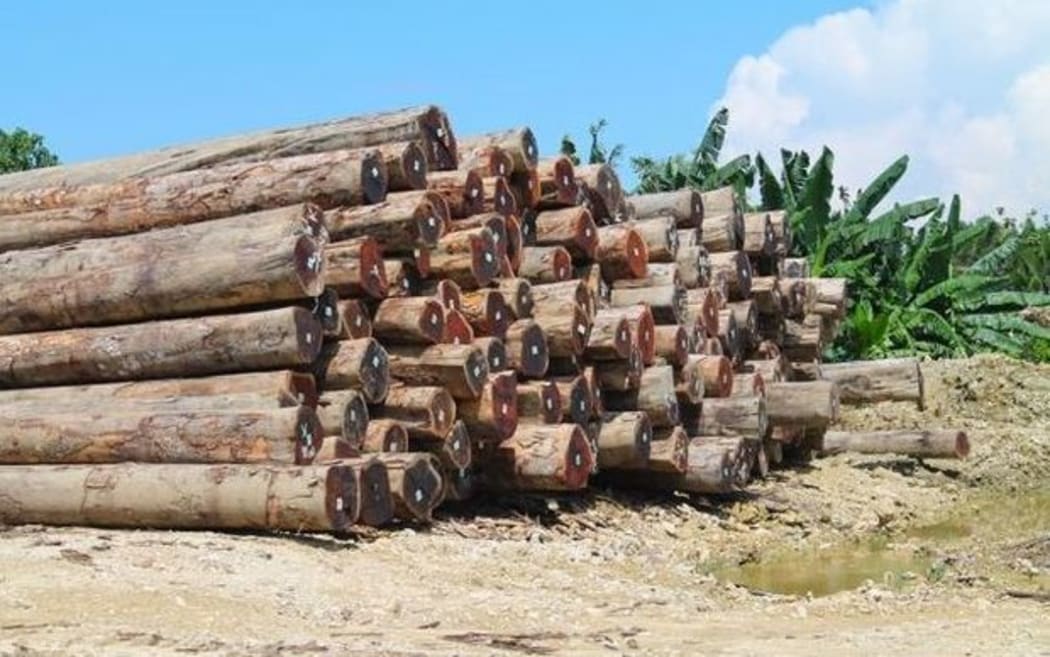The subsidiary of a major Malaysian company has agreed in mediation to renegotiate land deals in Papua New Guinea's East New Britain.
Gilford Ltd, which is wholly owned by Rimbunan Hijau, has been in negotiation with landowners over the Sigite Mukus project, with the assistance of the Catholic Archdiocese.
The company, through a Special Agricultural and Business Lease, had been harvesting trees and planting oil palms in three of the four areas, which together total more than 55,000 hectares.
Work at the fourth area, Sigite Unung, had not begun.
Archbishop Francesco Panfilo told Don Wiseman the landowners got all they had sought from the mediation.

Harvested logs in PNG
Photo: RNZI/Johnny Blades
Transcript
FRANCESCO PANFILO: We hope that something good will really come out of it. We managed to go through it and I would say we got what we wanted , somehow, and perhaps even more than we wanted, or we were expecting.
DON WISEMAN: There is a lot to work through over a number of years here, and during that time will harvesting of the trees continue?
FP: I don't think so. Because at this point in time it is very clear for example there is one of the areas in particular, the Unung Sigite Investment where they have never entered and now that agreement was cancelled. And now the landowners of Unung Sigite, they will be the ones to make a proposal, so the ball is in the hands of the landowners. Unfortunately, when we talk of the other three areas there has already been logging, they have already planted a lot of palm oil trees and so on and so forth. So there will have to be a renegotiation of the original agreement and sublease agreement that were made before. And that includes that there has to be transparency, there has to be proper communication, there has to be a review of the rental benefits, the royalties, the contribution to infrastructure and community development - things that were not present in the previous agreement. So that has to be done before the year 2020.
DW: Is this the first time an SABL [Special Agricultural and Business Lease] has been turned over?
FP: So in itself it is something quite positive because as I said what has happened has happened. For example another thing that is included in this mediation is the environmental damage - we will have to see what exactly, because the mediation will continue where there will be some issues that might not be easy to solve. The mediator is obliged to come into the picture. Mr Craig Jones is very clear on the result of the mediation, so when the issue of environmental damage and so on will be discussed. These are negotiations in other words. The important thing is that this cannot be denied anymore. It is part of the deal.
DW: It has been a long and tough process for you hasn't it?
FP: A long and difficult process and I will have to say expensive because we have to hire lawyers and of course the people there [the landowners] could not pay. So the Archdiocese came into the picture and we will see to it that we get t his through by the year 2020 when there has to be a renegotiation of the previous lease agreement. So there is still a lot of work to be done because at this point in time they have to organise themselves. So this will be a process that we will have to follow - it will not be a simple work.
To embed this content on your own webpage, cut and paste the following:
See terms of use.


